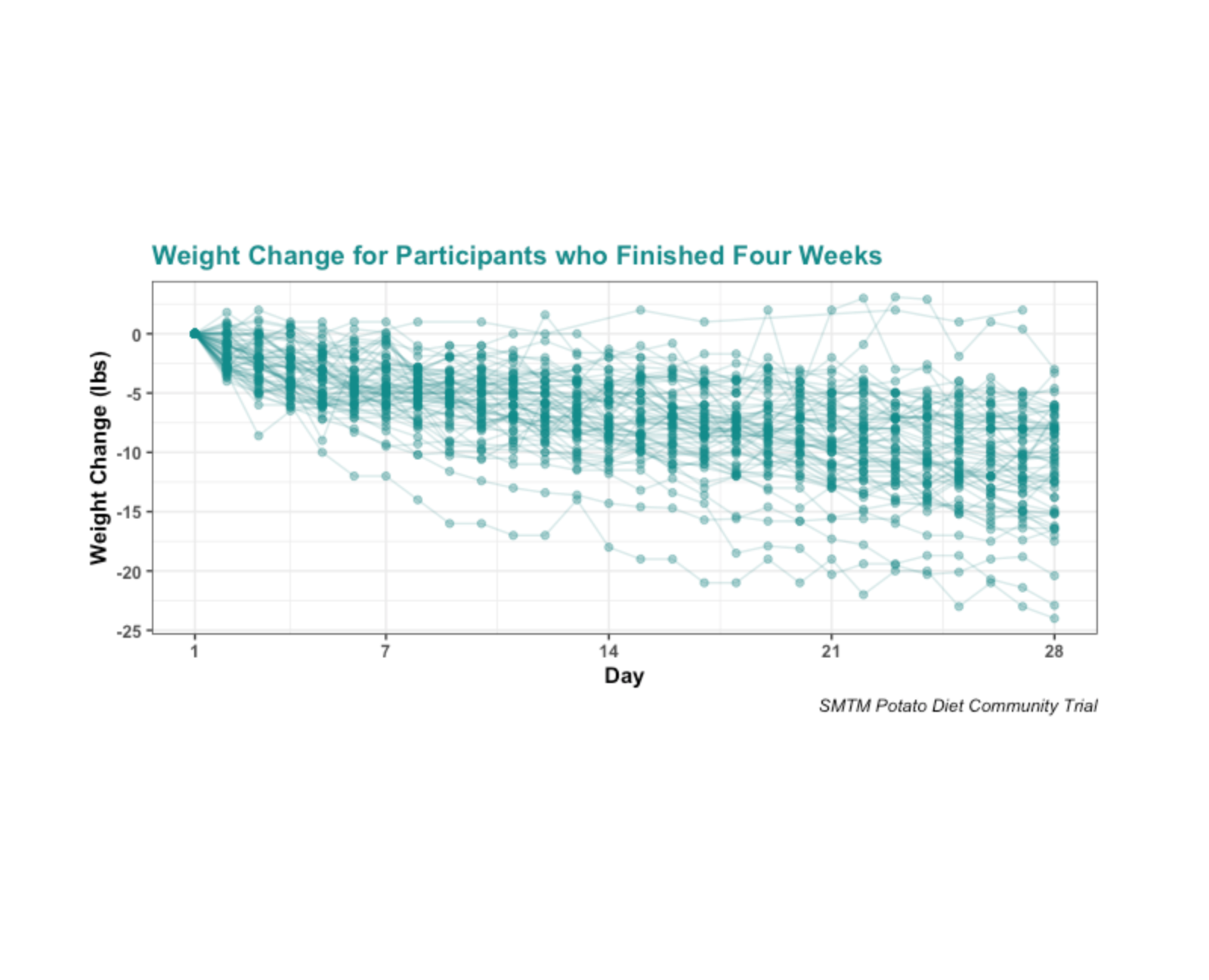Community Trial of Potassium for Weight Loss

Gary Wolf
October 21, 2022
(Note: this is a more coherent summary based on a recent Twitter thread about the trail.)
There’s a lot to like about this this new community trial of potassium for weight loss from Slime Mold Time Mold.
The idea comes from a previous, much more difficult community trial they organized: Eat nothing but potatoes, oil, and seasonings for 30 days. Many people lost weight on this diet, and analysis of the aggregated data showed some big declines. But why?
One of SMTM’s ideas is that the potassium in the potatoes may reduce the obesogenic effects of lithium. (For details, see the original post and lengthy comments.) If potassium is the active ingredient in the potato diet, maybe KCl alone would work, sans the tasty but relentless accompanying of potatoes, potatoes, and more potatoes.
My expectation is the the potassium/lithium theory won’t last. It rests on a fragile chain of guesses both about the role of lithium in obesity and the relationship between lithium and potassium in the body. These guesses are informed guesses, which I admire, but the possibility space here is very large, and it would be pretty surprising if they turned out to be correct. (My preferred candidate for why the P diet works is that it removes flavor novelty and intensity, and this itself lowers the lipostat. If that’s the case, there is no “active ingredient” and any dull monodiet would work, although when it comes to monodiets potatoes are a good choice since they are very nutritious.)
Still, I really like this community trial even though I doubt the lithium theory. If you tell me to test some speculative, plausible, but probably ineffective health intervention, I’m going to think carefully about how much it costs to me do the test. What’s the trade-off? How much money, time, and, most importantly, risk am I taking on here?
Well, testing a KCl supplement is easy. And the payoff if the longshot comes in is insanely high: it would be a stunning surprise. Plus, as a fan of n-of-1 experiments, I like that Time Mold Slime Mold tried the KCl supplement and it worked for them. From n-of-1 to n-of-many-1s, isn’t that how it’s supposed to work in our QS science fiction utopia?
Twelve years ago Eri Gentry and some other QS participants tried this with the Butter Mind study. The study design had a flaw: measuring the effects was complex. Seth Roberts, whose n-of-1 study had inspired the community trial, argued it confirmed his ideas. But I think the result wasn’t as decisive as Seth believed. The reason we didn’t learn more — or inspire others to follow up—is that even with the help of the free assays at Quantified Mind, the small magnitude of cognitive changes, and the sensitivity of the instruments to the measurement context, makes for a taxing analysis, and opens door for conflicting interpretations.
The design of the Potassium For Weight Loss study, by contrast, is a marvel of simplicity. There is not going to be a problem measuring changes in weight. And the effect predicted is very large. So: the trial is likely to yield an answer. I’m very curious to find out if the answer is yes or no.
In short, the potassium trial: 1) is about something important. 2) is easy to participate in. 3) does not involve much risk. 4) is likely to yield a clear result. 5) could shock the world.
Let’s do it.
You can sign up here: https://slimemoldtimemold.com/2022/10/15/low-dose-potassium-community-trial-sign-up-now/.


